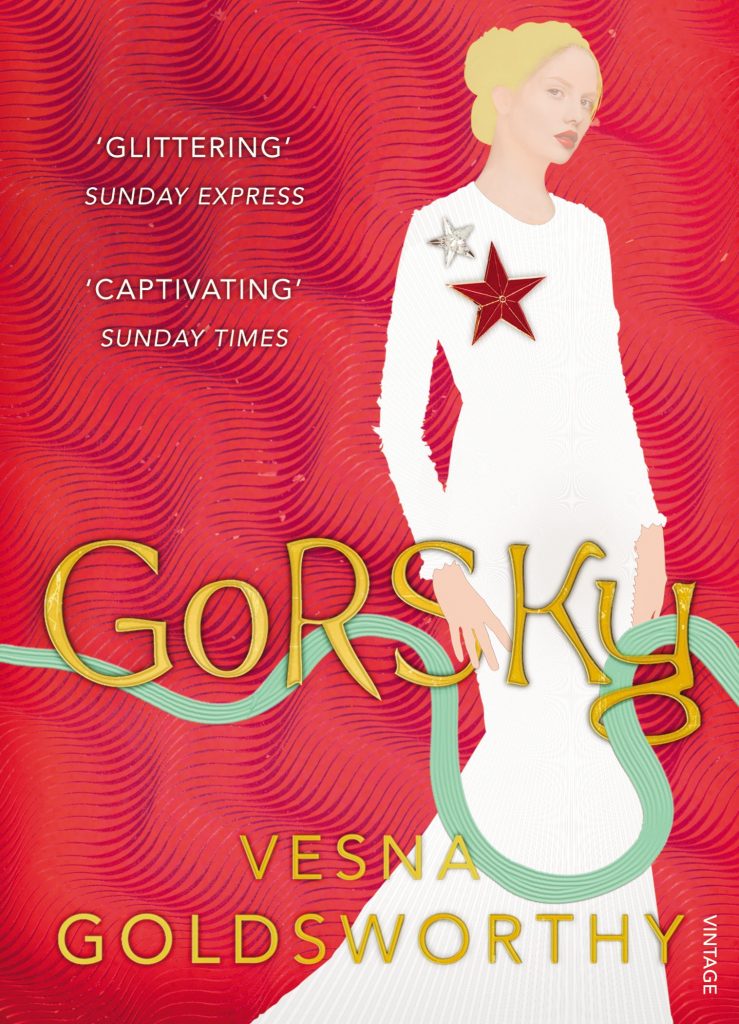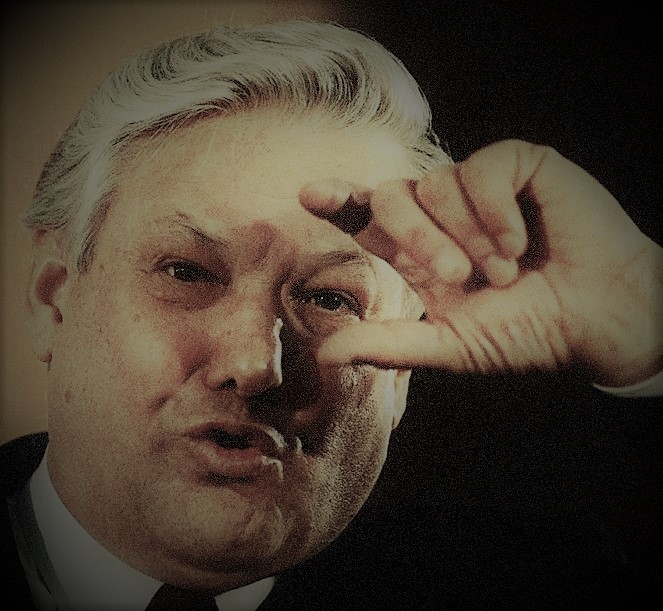Part one of this review is here.

Billionaire Russian businessman Roman Gorsky lives a life beyond imagining in terms of material wealth. Anything he wants, he buys. In London —Chelsea to be precise— he is converting a former barracks into a super-luxurious home, designed by the world’s leading modern architect.
First person narrator Nick —like many in this novel, the young Serbian is an immigrant to international London— works in a bookshop and is commissioned by Gorsky to stock what will be ‘the best private library in Europe’.
But can money buy love and happiness? Gorsky is certainly giving that a go. Both the location of his mansion, and the content of his library, are aimed at winning over Natalia, a beautiful Russian married to Englishman Tom Summerscale.
But Gorsky is too sophisticated a book to be a simple ‘money can’t buy you everything’ morality tale.
In Gorsky, Vesna Goldsworthy eventually presents a rounded view of the moneyed Russian élite; émigrés in their money-is-no-object, rootless London world. At first we get a relatively typical portrayal of vulgar riches and the notion that everything can be bought, even an imagined past, as exemplified in Gorsky’s commissioning of a library to represent decades of erudite reading that he has not done.

“Some went on open shelves, others were displayed, with the help of consultants from the British Library, in sealed glass cabinets with controlled temperature and humidity. Some of the precious volumes were opened on a particular page in their display cases. They bore handwritten annotations or dedications with signatures so familiar that they looked fake. Tolstoy, Dostoevsky, Chekhov, Lermontov, Turgenev, Goethe, Donne, Byron, Balzac” (Gorsky, p. 193).
At first too Natalia is drawn as an over-rich Russian type.
… she stood out, even in this town which was full of beautiful Russian women who followed Russian money as surely as seagulls follow cruise liners. She made Grace Kelly look like a market trader
… Natalia engaged in no discernible form of work beyond a vague notion of bringing a retrospective exhibition of Ilya Kabakov’s art to London.
… Natalia Summerscale was a complicated Fabergé egg, a priceless object I did not desire to possess. I tried to imagine the Russian place where she might have grown up, without much success. She could have been a child prostitute or the granddaughter of Marshal Zhukov; she might have been raised in a Siberian heroin den or a lavish dacha on the outskirts of Moscow; she could have been abused by an alcoholic mother or patted on the head by some Communist walrus with bushy eyebrows and three rows of medals on his chest … There was a rumour that she had a slide, a spiral chrome tube, descending two stories from her bedroom to her private swimming pool in the basement.
Gorsky, pp. 22-27

Natalia’s husband Tom has made his fortune in Russia in the 1990s, when the lawlessness that followed on from state collapse joined forces with a brute mutant form of what many mistakenly thought to be nascent Western capitalism, taking its victor’s place on the ruins of defeated Soviet Communism. That sort of dog-eat-dog world suits the somewhat boorish Tom, and has shaped his generalisations about Russia; sweeping statements that manage to combine condescension with grudging respect.
The Russians … You can’t defeat them unless they wish to be defeated. They are like beasts. They will die in their millions, without needing the consolations of an afterlife. You’ll never find such men and women anywhere else forget about the Muslims …
The Russians are scarier. They fight hoping for nothing. Do you know Natalia is from Stalingrad? Volgograd as it was called by the time she was born. Daddy was a Stalingrad rat, 15 in 1945. It takes a special kind of zest to survive all that and then procreate so unstoppably. He had five children in a country in which most people stop at two. And not even religious. Unless you count Communism …
Gorsky, pp. 41-42
Sometimes it seems as though the authorial voice shares such a superior vantage. One particular description of a group of Russian men playing cards whilst guests on Gorsky’s private Greek island made Russia in Fiction smile, when we really should know better.
The card players were indisputably Russian. They sat in shorts and tracksuit bottoms and an assortment of football shirts belonging to famous European clubs. They might have been at a holiday camp in their homeland, their synthetic sportswear comfortably accommodating their stocky forms, but here I wondered if they actually owned the teams.
Gorsky, p. 120
But as the novel progresses, surface sketches are given empathetic depth as the backgrounds of the characters emerge. Natalia’s father had been
the legendary Mayor of Volgograd … And still a Communist, a true believer. He had no interest in money, but every interest in stopping the seemingly unstoppable, the spread of NATO to the borders of Russia itself …
[His] eldest, Sergei, was killed in Afghanistan in the eighties.
Gorsky, p. 138
In the words of Gorsky himself
the Yeltsin times were difficult, chaotic. It was easy to make money under Boris Nikolayevich —irresponsible drunken oaf that people now say he was— but just as easy to lose it, and more. Human life was cheaper than a gallon of oil.
Gorsky, p. 232

Natalia herself had been on the books of a St Petersburg escort agency in the early 1990s. Gorsky is convinced that her decision to marry Tom stems not from love but from the fact that
the Englishman was nothing but a convenient passport
Gorsky, p. 140
In a restaurant, with all the principals present, Tom launches into a diatribe about Russian women.
the most beautiful in the world, the best educated, passionate, innately elegant
… But most importantly … they are not poisoned by feminism. They are real women and proper, obedient wives to their husbands. Pity about the Russian men … Neanderthal oafs … No wonder Russian women prefer Western men. They would rather marry an ordinary Englishman than a Russian millionaire.
Gorsky, p. 212
By novel’s end, Goldsworthy has drawn the experiences that bind these Russian émigrés together so well, that theirs is the depth and feeling of belonging, whilst it is Englishman Tom who is the excluded and uncomprehending outsider from whose mouth comes the course and superficial spouting of stereotypes.
Part one of this review is here.